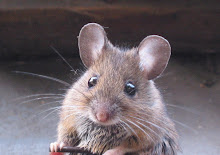Who doesn’t love the movie, Animal House? I mean, be honest - that is a great movie. So much fun – drunken, sexy, disrespectful fun. The book, The Real Animal House written by the real Pinto (played by Tom Hulce in the movie) is everything the movie is, only exponentially so. This is a raunchy, slightly fictionalized retelling of the Dartmouth Alpha Delta Phi debauchery of the early 1960s.
Now, I’m no prude, but I did find this book to be a little much. Miller is neither very funny nor that good a writer (or maybe he is and he just didn’t work that hard at it this time) and it took some fortitude on my part to make through 300+ pages of vomiting, urination, defecation, masturbation and fornication … repeated ad nauseum. While Harold Ramis’s foreword states that Miller was on the National Lampoon staff and co-wrote the movie with him, this book's prose leads me to believe that the others on the writing team took Miller’s wild tales and crafted them into the movie comedy we know and love.
The “where are they now?” section at the end of The Real Animal House is pretty interesting. A fair number of the Adelphia brothers are dead, several from alcohol-related issues; John Belushi’s character, Bluto, is a composite of several of Miller’s AD brothers; and Miller insists that Dean Wormer’s wife is in no way representative of the wife of his actual college dean (hee!). One thing that I think this book does do well is represent the strong friendships that can arise out of fraternities; Miller seems to have kept in touch with many of his brothers to this day.
The Real Animal House is a book for actual Alpha Delts or for people who are enormous fans of the movie and want to immerse themselves in all the lore. For the rest of us, it may be a little more than we need or want to know.
1 hour ago






I disagree utterly. Chris Miller's "the Real Animal House" is a maniacal, frenzied piece of filth and I mean this in the highest possible sense. Chris Miller was, of course, responsible for many a humourous 'dirty' story at National Lampoon(which were very fine pieces of writing, although hardly acknowledged as such by Quality Lit stuffed-shirts) and is a self-professed literary disciple of the late, great Terry Southern(a name which should speak for itself). The book is not simply a rehashing of the movie or the novelization of the movie by Miller(which I strongly recommend, if you can find it). If the movie was a battle between (in Freudian terms) the Reality Principle and the Pleasure Principle(you may recall that the Karen Allen character voiced the Reality Principle in the film), the Reality Principle, in this book, rapidly gave up the fight and joined the victorious opposition. This book does lack the political underpinnings of the film(no Niedermeyers, etc.), as fully articulated by Tony Hendra in his book "Going Too Far"(a book I recommend in spite of considerable differences with several of its contentions). (One might consider "Caddyshack", a film co-written by Doug Kenney and Harold Ramis, as a failed class comedy - it failed largely because North Americans, and Americans in particular, have an inadequate grasp of the idea of 'class.') The book is both bacchanalian and Bakhtinian(for all you lit crit wimps out there)and is a joyous celebration of all that is naughty and gross. Chris Miller is still very frank about the topic of wanking - something Quality Lit writers usually prudishly avoid. The characters are not as cartoonishly writ large as in the movie "Animal House" - if I had to criticize the book, I'd say that some characters in this book are insufficiently differentiated. In the same spirit of criticism, I'd say that here and there Miller uses a turn-of-phrase that people at that time simply wouldn't have used - the peril of living too long, I'd say, heh, heh. And, of course, one might wonder how people engage in this behaviour and still manage to pass(most party-hearty types tend not to hold up under the academic pressure - I've spent most my life in university/take my word for it). However, the Reality Principle cast merrily to the winds, I think we best not view this novel/fictionalized memoir/whatever the hell it is by the standards of realistic fiction as though it were Jane Austen or whatever. The book is curiously silent about actual academic work. Perhaps a loss - remember the charming performance of Donald Sutherland as a cynical,slacker prof in the film? Not entirely realistic perhaps, but then again I have seen a thing or two in my time at academia. And, of course, people who drink like this usually end up with substance abuse problems down the road. But, hey, that's our old pal Reality talking again. The best scene in the book, for my money, is the trip to the black whorehouse, which is a minor masterpiece both of bawdy humour and of sharp humourous observation(if Chris Miller is reading this, Terry Southern would have loved this, believe me!). It is a set-piece that almost stands by itself. In spite of my minor reservations about the book, I loved it - it's required reading for old Nat Lamp fans, fans of the movie, fans of the novelization, all of us who belong to the tribe of Terry Southern, and all of us who love bawdy humour. Chris Miller fought decades (literally) to get a book published - the editors and readers who turned him down were fools. Obviously, I disagree with the preceding assessment of the book. Different strokes for different folks, and all that....Greg Cameron, Surrey, B.C., Canada
ReplyDelete